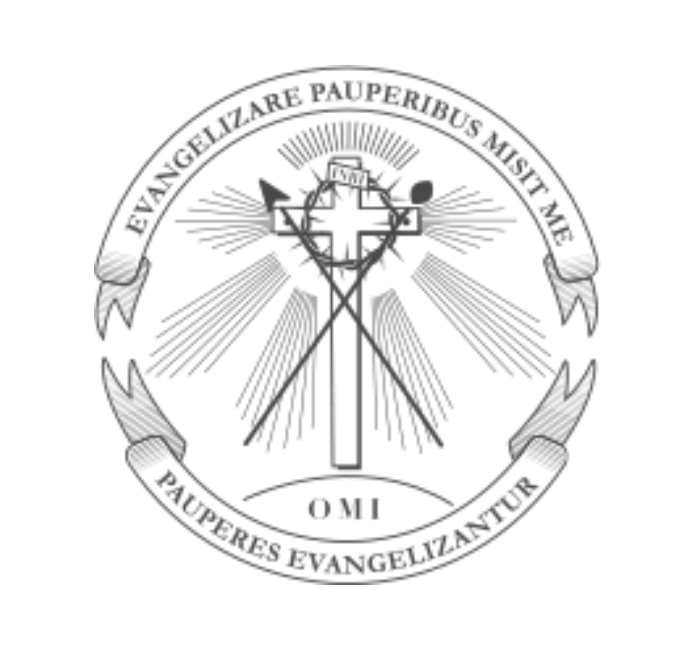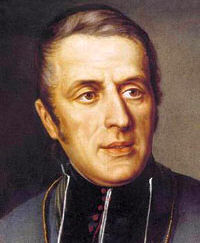The Oblate Priests and Brothers who have been serving the Catholics in Sri Lanka since the beginning of 1847, devoted also their time and energy for the education of both Catholic and non-Catholics. For example, the local language school begun in Anuradhapura by the Oblate Bishop Christopher Bonjean in 1874, became a registered Government English school under the leadership of Oblate Bishop Henry Julain, with the name St. Joseph’s College on March 19, 1898. So the Oblates are not strangers in Anuradhapura.
The desire to begin a College once again in order to serve the poor and have dialogue of life in a Buddhist environment originated in the Oblates (Priests and Brothers belonging to an Association in the Catholic Church) and it became a reality with the name, Mazenod College, at Rajabima Oblate Centre, Anuradhapura on the 3rd January 2019 in Anuradhapura.
The official opening of Mazenod College took place on the 7th January 2019 at 9.30 a.m. in the presence of Bishop Norbert Andradi, OMI of the diocese of Anuradhapura, Fr. Irwin Morais, OMI, the Provincial Superior, Venerable Nugethane Pagnanada Thero, the chief Incumbent of Sri Sambudhi Jayanthi Viharaya, Anuradhapura, Sivashri Balachandran, the Hindu monk of Anuradhapura, several diocesan and Religious priests, Religious Sisters, Oblates and the parents of the children.
Fr. Dileepa Jayamaha, OMI, the Principal of Mazenod College- English medium- assisted by Fr. Savindu Senarathne, OMI, began its classes with 30 children (boys and girls) in grade 01 with three teachers. In his welcome speech, Fr. Dileepa Jayamaha said that Bishop Eugene de Mazenod was the Founder of the Association of Oblates, approved by the Pope and that he (bishop Mazenod) wanted the Oblates to serve the poor and the disadvantaged and lead them to act like human beings first and enable them to become holy people.
Fr. Dileepa Jayamaha said that Mazenod College was begun in Anuradhapura, fulfilling the desired purpose of the Oblates expressed at the gathering at Tewatte, to serve the poor and have a dialogue of life with the Buddhists and the families belonging to other Faiths.
Mazenod History
Oblates in Sri Lanka
The Catholics in Sri Lanka, during their persecution under the Dutch, lived for 30 years without the presence of Catholic priests, until the arrival of Fr. Joseph Vaz in 1687 from India. Although after the arrival of the British in Sri Lanka in 1802, the Catholics gained Religious Freedom on 27 May 1806, the Catholics could not readily expect many Catholic priests from India or from Europe. Such a situation compelled Bishop Orazio Bettachini of Jaffna to go Europe in 1845 in search of Catholic missionaries to serve the Catholics in Jaffna. During his trip Bishop Berteaud of Tulle, in France, told him to approach Bishop Eugene de Mazenod, the Founder of a new Association of priests, in Marseille, France and tell him that the poor Catholics in Jaffna need the services of missionaries. “Go to Marseilles. There is a bishop there whose Congregation is still small, but the man himself has a heart as big as Saint Paul‘s, as big as the world”. The word ‘poor’ and their cry for help touched the heart of Bishop de Mazenod and he dispatched the first band of four Oblates. (three priests and one Oblate Coadjutor Brother) led by Fr. Stephen Semeria. They arrived in Ceylon (Sri Lanka) on 27 November 1847 and began their missionary tasks in Jaffna in 1848.
Bishop Eugene de Mazenod, not only willingly sent members of his Association (Congregation) to render their services in Sri Lanka but continued to correspond with them. During the 14 years from the first arrival of Oblates in Sri Lanka in 1847 up to his death in 1861 he had sent 51 letters to Sri Lanka, most of them to Father (later Bishop) Stephen Semeria, guiding the Oblates.
The Oblates have served the people of Sri Lanka both Catholic and non-Catholics in the Northern, North Central, the North Western, Southern and Eastern Provinces. To the Catholic, the Oblates were preachers, teachers, and leaders guiding them to imitate Jesus Christ. To the non-Catholics, they were collaborators for human advancement as educators, social activists, poets, historians and as experts contributing to cultural (music/film) activities etc. According to Fr. W.L.A. Don Peter (former Rector of St. Joseph’s College, Colombo and of Aquinas College of Higher Studies), Bishop de Mazenod’s initial concern for his sons and their work had been a factor contributing to the progress of the Oblate activities in Sri Lanka.

